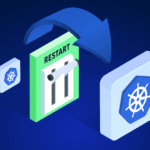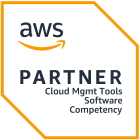
How Top CTOs Incentivize DevOps Engineers to Take Responsibility for Cloud Costs

Senior Content Manager
Cloud costs–they’re Dev’s responsibility right?
Well, not if you ask Dev. In their view, ops needs to take care of managing cloud infrastructure as well as the fees it incurs. Or is it someone else’s responsibility altogether?
When it comes to allocating ownership for cloud costs, it’s often someone else’s problem – and no DevOps Engineer wants costs to come at the expense of performance, speed, or their precious time.
For this reason, getting DevOps Engineers to be accountable for the financial repercussions of their technical decisions feels like pulling teeth.
But at least you’re not alone. According to the 2022 State of FinOps Report, 30% of respondents reported that getting engineers to take action for cloud cost optimization was their biggest FinOps challenge.
This is something that is extremely common across a multitude of organizations in a variety of industries around the world.
So what can CTOs and technical executives do to get engineers to take more ownership for cloud costs?
Talk to DevOps Engineers in Their Language & From Their Perspective
There’s a reason you’re getting nowhere when you simply tell a DevOps Engineer to be more conscientious of cloud costs–or even if you verbally communicate that they should remember to turn off instances.
DevOps Engineers have a tremendous amount of tasks and responsibilities. Making sure the product they work on runs at the highest performance is top priority, whereas keeping costs low is often at the bottom of their list.
There is a lot of work that goes into building high performance technology and all those tasks are organized in a specific way and prioritized according to the needs of the organization. If tasks related to cloud cost optimization are not allocated in the manner that engineers are accustomed to working in, it’s easy for them to get lost or forgotten. Therefore, in order to ensure your DevOps team views cloud costs as an important part of their role, you should integrate it into their workflow with whichever task management system they already use.
Make sure tasks such as rightsizing instances or turning off unused resources are created as a ticket. This way, it’ll stick out in their minds as a project to put on their to-do list.
In addition, when DevOps Engineers build new features, a critical part of their design is to understand the costs involved with the feature’s requirements and review them as part of cost optimization protocols. It’s important to ingrain this practice as early as possible within the design of a new feature so it’s addressed naturally and not as an afterthought. This is because once you launch a pricey service, it’s extremely difficult to go back and optimize it later.
You should also not assume that your DevOps Engineers know how to perform all cost-related tasks. Instead, provide easy-to-follow documentation so they understand how to adjust instances as well as other important best practices. This way, FinOps needs are easily articulated, understood, and work cohesively with DevOps workflows.
Be Transparent and Data-Driven
It’s no secret that DevOps Engineers love data. They don’t want to hear fluff about how what they do matters. They want to see results.
So provide them with the transparency they need to see the direct impact of their tasks and decisions. Use a tool that displays their cloud configurations and costs in one place and shows a direct correlation between them. Tagging can help make this transparency possible. Once engineers can see how their adjustments impact the cloud bill, it will provide them with the motivation they need to feel they are making an impact on your organization’s cloud spend.
Make it easy and accessible for them to view these metrics so they can use them to validate future decisions.
Make Cloud Costs a Part of Their KPIs
If cloud costs aren’t considered a goal for the DevOps department, why should they even bother?
Make it clear that these metrics are crucial to your business by including them in their core objectives.
Hold DevOps Engineers accountable for the types of instances they’re spinning up and if they are the best fit for the application’s needs. Measure how many instances are being scaled down (if they need to be) and tag resources so the right business units are held responsible for the costs they incur.
Create cost accountability metrics to go along with the launch of new features and applications. Ask questions before you launch such as the minimum deployment size of a new feature, how much it costs, how often they should scale the system down, and anything else that may be relevant.
This way, DevOps Engineers are thinking about costs from the get-go, putting them in the right mindset for acing their cloud cost optimization goals.
Lastly, reward your team for a job well done. Celebrate when they’ve gotten costs down to their KPIs, give awards to teams or individuals that reached specific goals. And mention it when they’ve taken action in the right direction. After all, a little “great job!” goes a long way.
Final Thoughts
There’s no way to sugar coat it–getting DevOps team on board with optimizing cloud costs can be a struggle.
The key to successful implementation of cloud cost management is good communication and the ability to speak the language of your DevOps team. This way, you build cloud cost optimization into their already established culture without taking them too far out of their comfort zone.
Some argue that gamification is the way to go. However, if rewards aren’t backed up by real cultural change and direct ownership of cloud costs, this strategy won’t get you very far. Having a cross-functional team that understands the technical ramifications of cost saving initiatives is also key. This way, DevOps Engineers know they won’t be left in a panic trying to fix performance issues as a result of cloud financial management efforts.
As you begin holding the DevOps team accountable for cloud costs, a lot of pushing may be required, but if it’s done right, eventually, it will become a natural part of their processes and procedures.
Want to make cloud cost optimization even easier for your DevOps team? Learn how Zesty can automatically adjust cloud infra to changing demand without any human intervention, saving up to 60% on the cloud. Chat with our cloud experts to learn more!
Related Articles
-
 Zesty now supports In-Place Pod Resizing for Seamless, Real-Time Vertical Scaling
Zesty now supports In-Place Pod Resizing for Seamless, Real-Time Vertical Scaling
July 30, 2025 -
 The endless cycle of manual K8s cost optimization is costing you
The endless cycle of manual K8s cost optimization is costing you
July 2, 2025 -
 Why major Kubernetes monitoring vendors miss the mark on cost visibility
Why major Kubernetes monitoring vendors miss the mark on cost visibility
February 27, 2025 -
 Rethinking CPU Utilization Practices
Rethinking CPU Utilization Practices
January 21, 2025 -
 How HiberScale Technology Optimizes Kubernetes Deployments
How HiberScale Technology Optimizes Kubernetes Deployments
January 2, 2025


